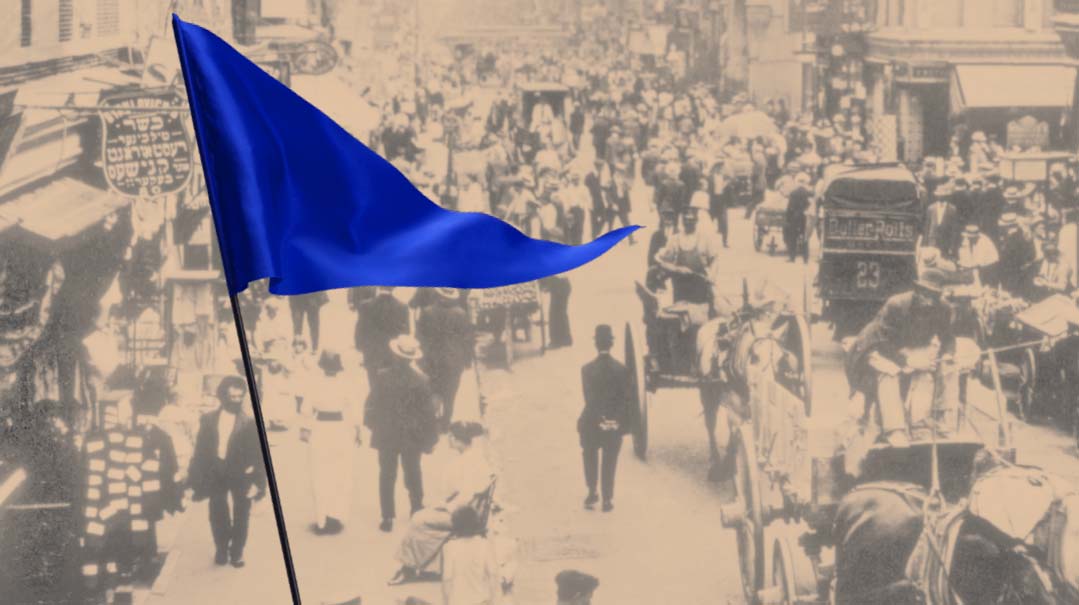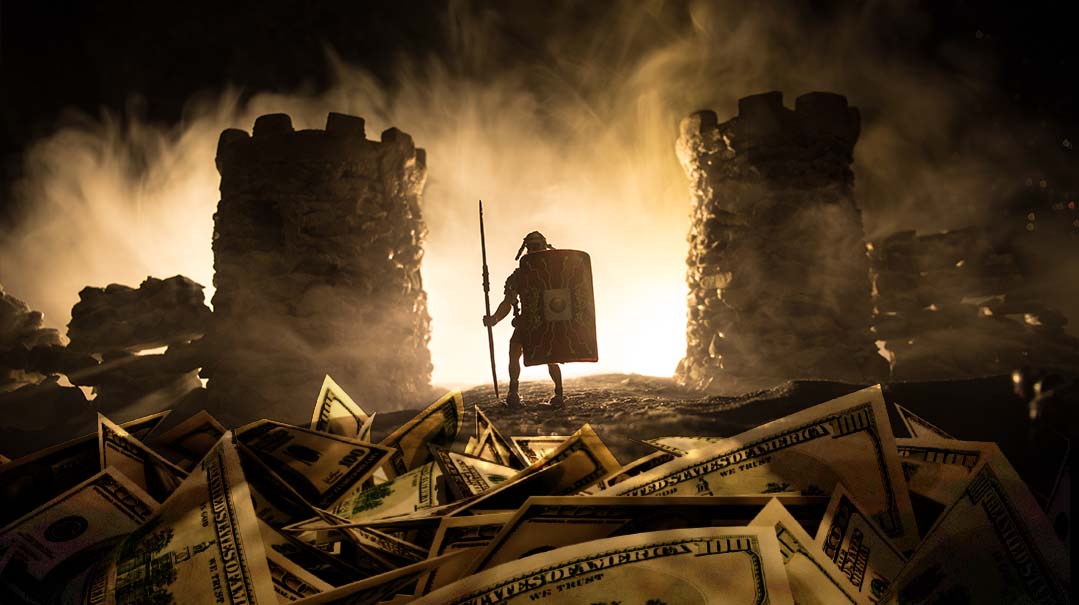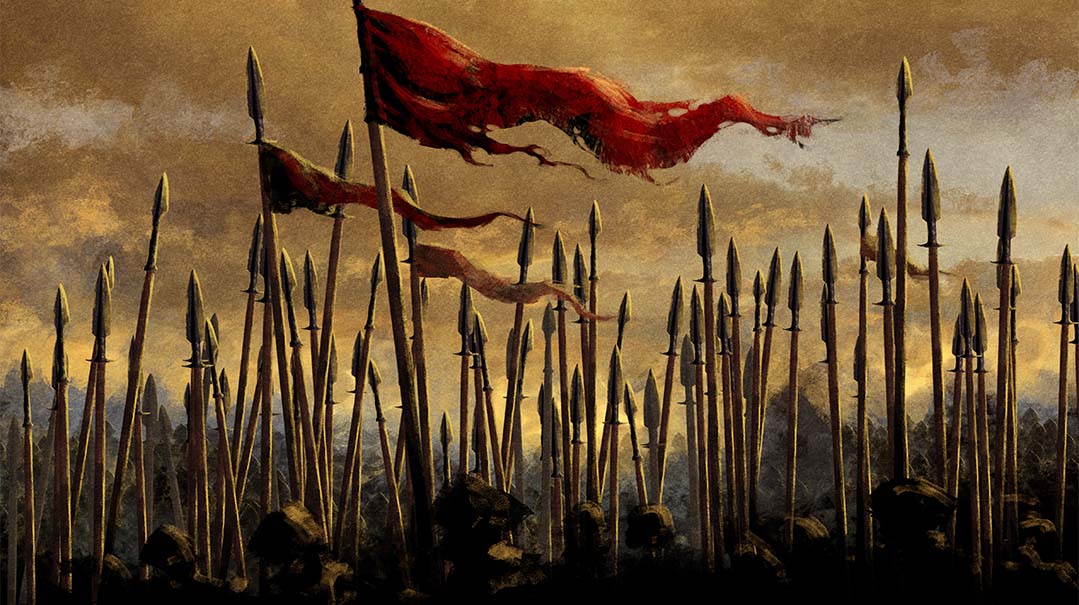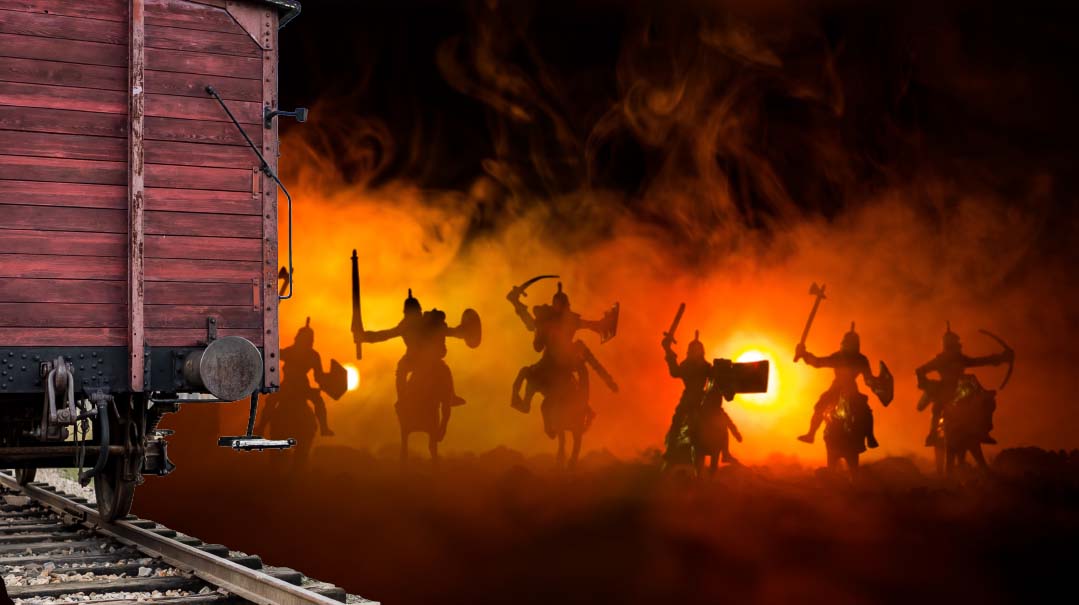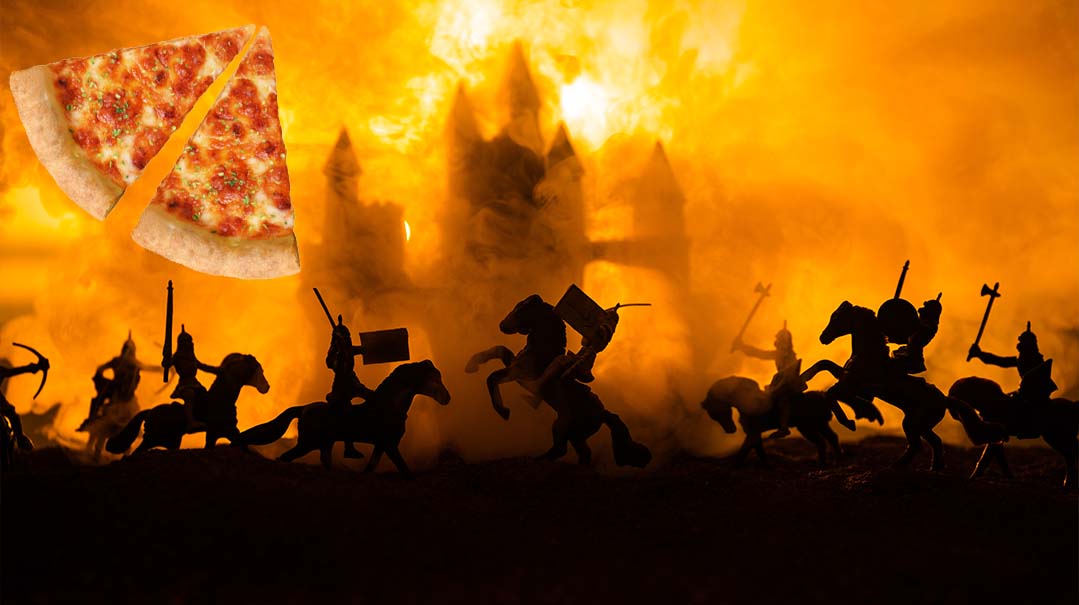Stand and Be Counted

“Mi l’Hashem elai!” In every generation, there are those who respond and take a stand for Hashem
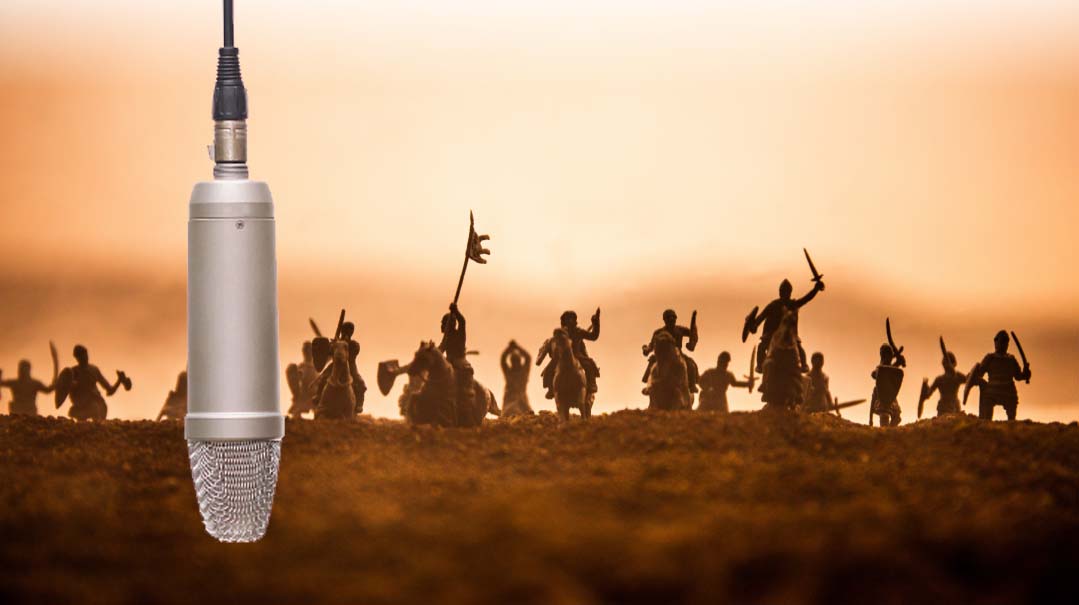
At the age of four months, I arrived on American shores, carried on my parents’ inked and numbered arms. They were the sole survivors of their immediate families. Our worldly possessions were packed into two worn suitcases that, somewhat like their owners, hardly reflected the gamut of experiences that landed us here.
My father was a rabbi in America throughout the ’50s, ’60s and early ’70s. He ministered to Orthodox congregations, though most of the members weren’t religious, and I spent my early childhood moving across the length and breadth of the United States. I was born in Prague; my sister Esther was born in Bangor, Maine; my sister Chaya was born in Los Angeles, California.
Gazing across America’s “fruited plain,” it’s difficult to fathom that Orthodox life — right, center, left — didn’t always look as vibrant it does today. In some of the smaller cities where we lived, the observant families could be counted on one hand — with digits leftover.
We eventually settled in the Midwest where my parents found day schools and enough Jewish life to ensure a measure of normalcy. We had friends who, though small in number, constituted our extended “nearest and dearest.”
During those decades, Orthodox congregations were bleeding out. There was threatening encroachment on traditional Judaism by lesser ritually observant factions, and the battlefields were littered with compromised and discarded mechitzahs. The use of microphones in shul on Shabbos was becoming the next line in the sand. My father’s synagogue board — in an effort to try and stem the tide and appeal to a younger crowd — asked my father about installing a microphone.
He said no. The congregation was a small one, and my father had begun making his weekly speeches from the center of the room so that he could be more easily heard. It wasn’t enough. They asked again, and he still said no.
One Friday, a few weeks later, my father walked into the shul, and discovered a microphone set up and ready.
Without saying a word, he turned on his heel, walked out, and never looked back.
There were no calls of validation, nor was there any fanfare. The few phone calls he did receive during the following weeks were from other rabbis in the community (who themselves had made concessions) who told him he had no right depriving his family of a livelihood and that one had to choose their battles in order to stem the tide of assimilation.
To this day, I don’t know how he did it.
My parents had no other means of support. There were no rallies, no ripples of applause, no discussions or publicity. They struggled financially, yet I never heard one comment of remorse over his actions or reactions.
Over half a century has passed, and that synagogue is now defunct.
Sometimes, the echoes of silent action thunder through time, and can only be heard and seen in the faithful generations to come.
(Originally featured in Family First, Issue 770)
Oops! We could not locate your form.

